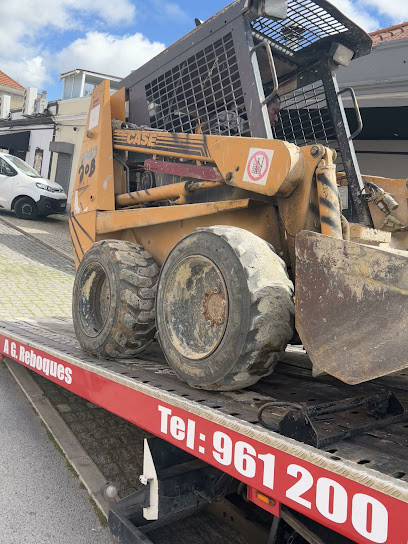
Évora: A Cultural Gem of Portugal
Explore the rich cultural tapestry of Évora, Portugal's historical gem, where ancient architecture and vibrant traditions await every traveler.
Discover Évora, a captivating cultural landmark in Portugal, rich in history, architecture, and vibrant traditions. This UNESCO World Heritage site invites tourists to immerse themselves in its enchanting atmosphere, where ancient history meets modern life.
A brief summary to Évora_27 Capital Europeia da Cultura
- R. de Olivença 3, Evora, 7000-866, PT
- +351966020850
- Visit website
Local tips
- Visit during the shoulder seasons of spring or fall for milder weather and fewer crowds.
- Don’t miss the local markets for authentic Alentejo cuisine and handcrafted goods.
- Take comfortable shoes, as the city's cobblestone streets can be uneven and challenging.
- Consider a guided tour to gain deeper insights into Évora’s rich history and cultural significance.
- Explore the surrounding countryside for stunning landscapes and traditional villages.
Getting There
-
Walking
To get to Évora_27 Capital Europeia da Cultura from the city center, start at the Praça do Giraldo, which is the main square in Évora. From the square, head south on Rua 5 de Outubro. Continue straight until you reach the intersection with Rua de Olivença. Turn left onto Rua de Olivença and walk for about 300 meters. The destination will be on your left at R. de Olivença 3, 7000-866 Évora.
-
Bus
If you prefer to take public transport, check the local bus schedule for routes that stop near R. de Olivença. A common route is to take Bus 1 from the main bus station in Évora. Get off at the stop called 'Olivença' and walk about 50 meters back along the street to reach Évora_27 Capital Europeia da Cultura at R. de Olivença 3.
-
Bicycle
For those who enjoy cycling, you can rent a bicycle from one of the local rental shops near Praça do Giraldo. Once you have your bicycle, ride south on Rua 5 de Outubro, then turn left onto Rua de Olivença. Keep riding straight for about 300 meters until you reach Évora_27 Capital Europeia da Cultura, located at R. de Olivença 3.
Discover more about Évora_27 Capital Europeia da Cultura
Iconic landmarks you can’t miss
Évora_27 Capital Europeia da Cultura
0.0 km
Explore the rich cultural tapestry of Évora, Portugal's historical gem, where ancient architecture and vibrant traditions await every traveler.
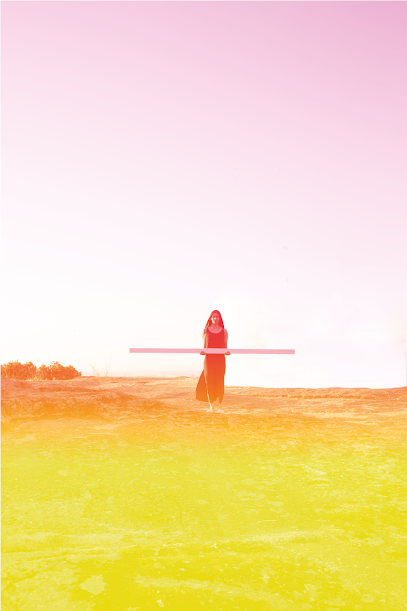
Largo Luiz de Camões
0.1 km
Discover the charm of Largo Luiz de Camões in Évora, Portugal—a vibrant square filled with history, culture, and local life.
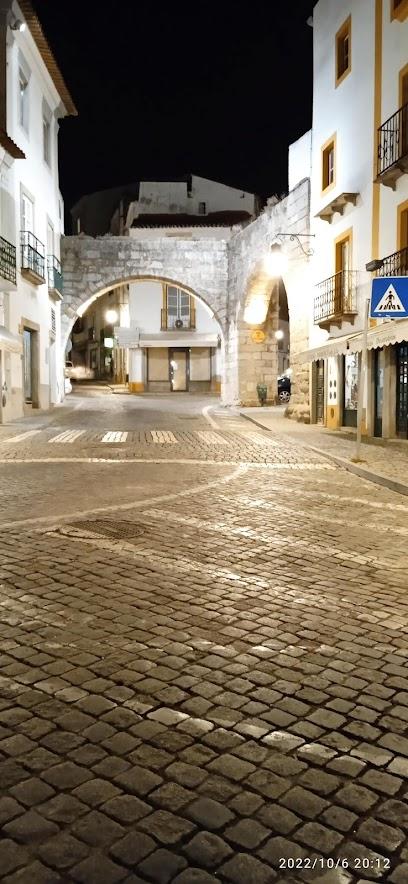
Torre de Sisebuto
0.1 km
Discover the historical charm of Torre de Sisebuto in Évora, a captivating landmark that reflects Portugal's rich architectural heritage.
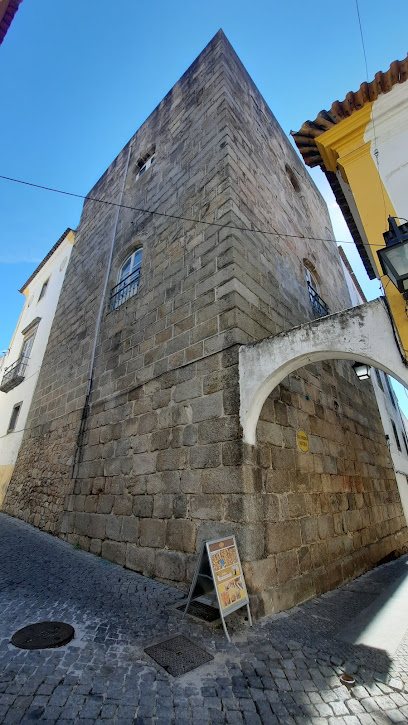
Estação elevatória de Évora
0.1 km
Explore the Elevator Station of Évora, a historical landmark blending rich culture with stunning views in the heart of this UNESCO World Heritage site.
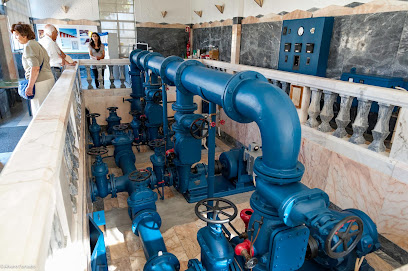
Santo Antão Church
0.1 km
Explore the rich heritage and architectural beauty of Santo Antão Church in Évora, a must-visit Catholic church and vibrant tourist attraction.
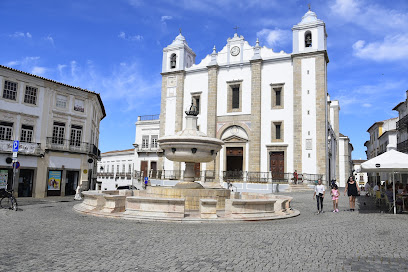
Genuine Alentejo - Portugal's Remarkable Tourist Experiences
0.2 km
Explore Alentejo's rich history, stunning landscapes, and exquisite local cuisine in the heart of Portugal's vibrant culture.
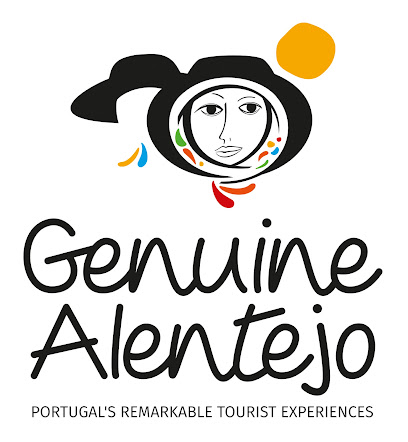
Taberna Típica Quarta-feira
0.2 km
Discover the authentic flavors of Portugal at Taberna Típica Quarta-feira in Évora, where traditional dishes and a warm ambiance await.
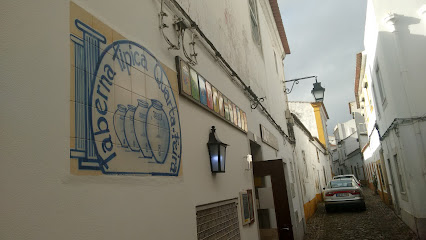
Miradouro do Jardim Diana
0.2 km
Explore the stunning Miradouro do Jardim Diana for breathtaking panoramic views of Évora's historic skyline, perfect for sunset photography.
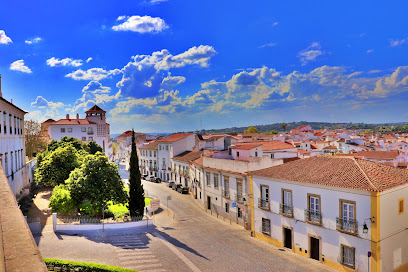
Praça do Giraldo
0.2 km
Discover the charm of Praça do Giraldo in Évora, a vibrant town square filled with history, culture, and delightful local experiences.

Igreja dos Lóios / Convento dos Lóios em Évora
0.3 km
Explore the stunning Igreja dos Lóios in Évora, a masterpiece of Manueline architecture, rich in history and spiritual beauty.
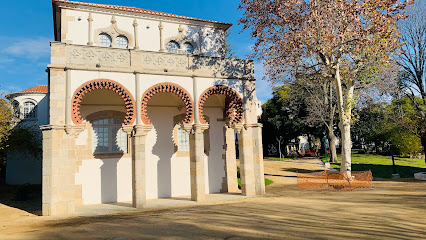
Largo dos Mercadores
0.3 km
Discover the historical charm of Largo dos Mercadores, a vibrant square in Évora showcasing Portugal's rich heritage and lively market culture.
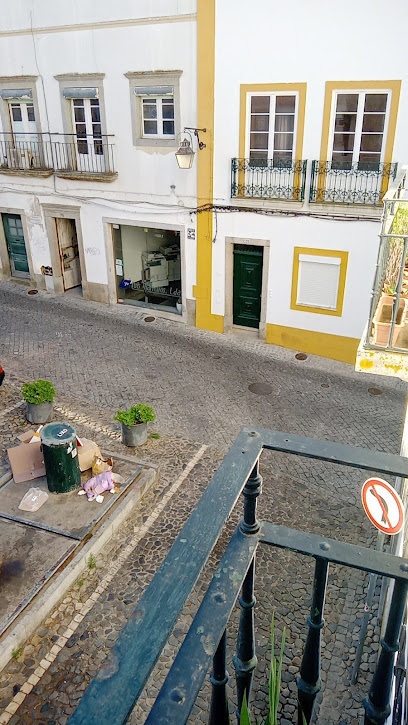
Church of Saint Mamede
0.3 km
Discover the tranquil beauty and rich history of the Church of Saint Mamede in Évora, a stunning example of Catholic architecture and cultural heritage.
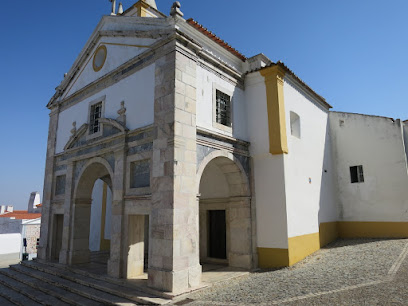
Mezuzah Indentation- Jewish Quarter
0.3 km
Explore the Mezuzah Indentation in Évora's Jewish Quarter, a captivating historical landmark that reveals Portugal's rich Jewish heritage and culture.
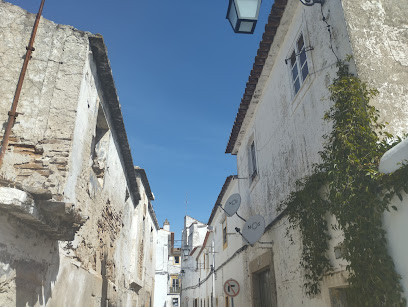
História de Évora (Coluna)
0.4 km
Discover the História de Évora (Coluna), a stunning sculpture narrating the historical tales of Évora amidst a vibrant cultural backdrop.
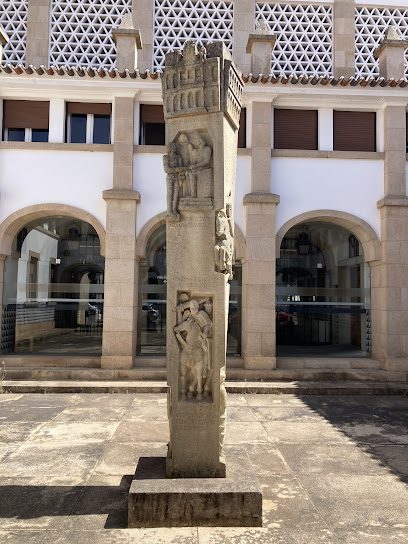
Muralhas de Évora
0.5 km
Discover the captivating Muralhas de Évora, an ancient fortress that beautifully combines history and stunning views in Portugal's UNESCO-listed city.
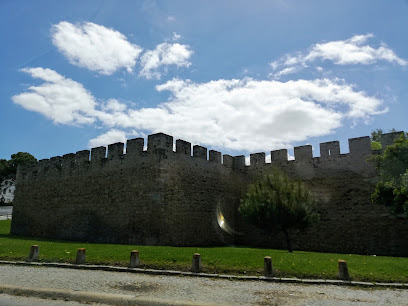
Unmissable attractions to see
Igreja de São Tiago
0.1 km
Explore the stunning Igreja de São Tiago, a historic Catholic church in Évora, showcasing exquisite architecture and rich cultural heritage.
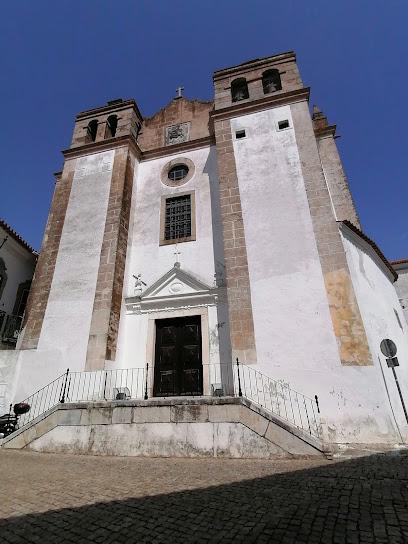
Caixa de Água da Rua Nova
0.1 km
Explore the architectural beauty and historical significance of Caixa de Água da Rua Nova in Évora, a must-visit tourist attraction steeped in culture.
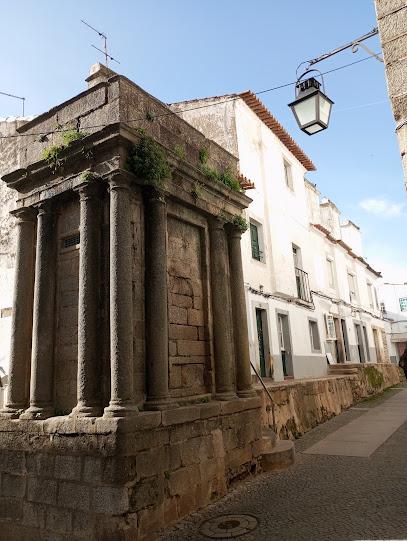
Casa Nobre
0.2 km
Explore the historical elegance of Casa Nobre in Évora, a landmark rich in culture and architectural beauty, perfect for history lovers and photographers.
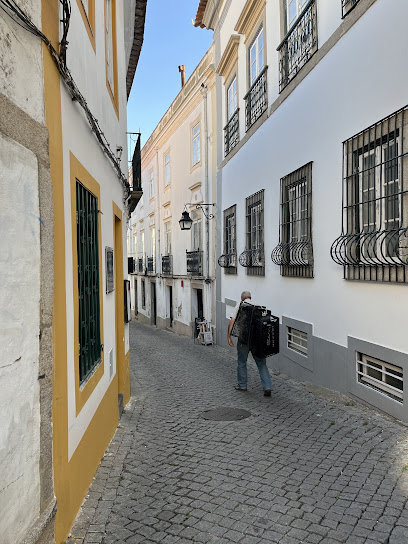
Évora Cultural Experience
0.2 km
Discover the historical charm and vibrant culture of Évora at Giraldo Square, the heart of this UNESCO World Heritage city.
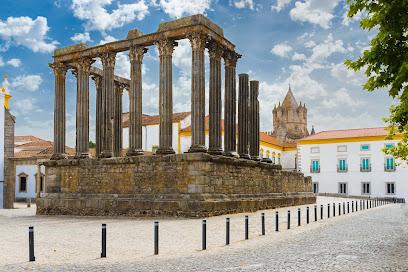
Giraldo Square Fountain
0.2 km
Explore the historic charm of Évora at Giraldo Square Fountain, a cultural gem surrounded by lively cafes and stunning architecture.
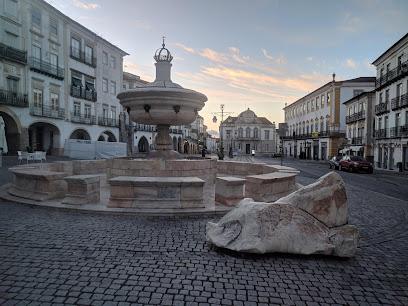
Clock Museum - Pole Évora
0.2 km
Explore the fascinating world of horology at Évora's Clock Museum, a unique tourist attraction showcasing exquisite timepieces and their histories.
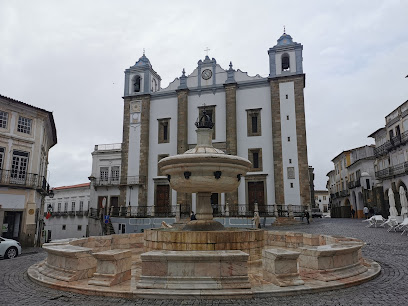
Casa do Montado
0.2 km
Explore the captivating world of cork at Casa do Montado in Évora, where tradition meets sustainability in a charming museum experience.
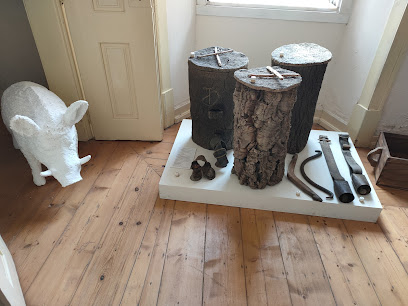
Nicho do Senhor dos Terremotos
0.2 km
Explore the Nicho do Senhor dos Terremotos in Évora, a serene tourist attraction reflecting the city's rich spiritual and cultural heritage.
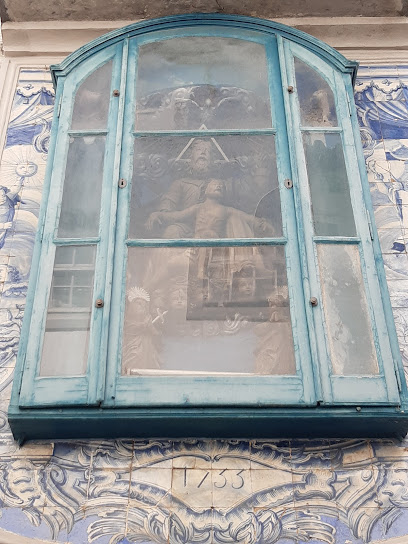
Centro de Arte e Cultura - Fundação Eugénio de Almeida
0.2 km
Explore the artistic legacy and contemporary exhibitions at Fundação Eugénio de Almeida in Évora, a cultural haven for art lovers.
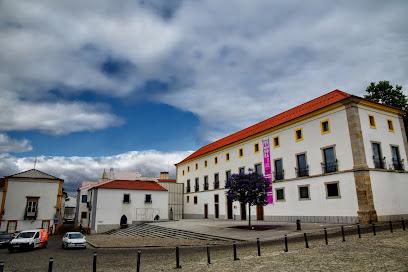
Centro Histórico de Évora
0.2 km
Immerse yourself in the rich history and vibrant culture of Évora's Centro Histórico, a UNESCO World Heritage site showcasing stunning architecture and local delights.
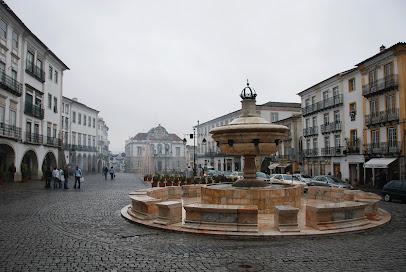
Cadaval Palace
0.2 km
Experience the rich heritage and culinary delights at Cadaval Palace in Evora, a must-visit destination for every traveler.
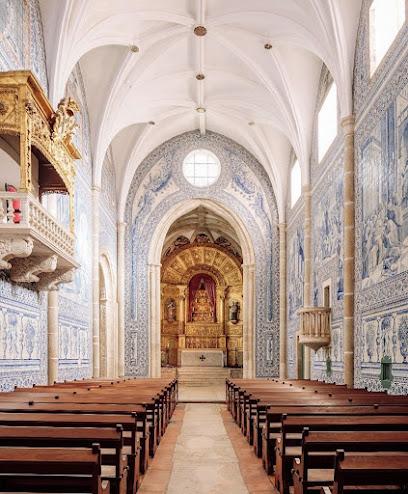
Torre das Cinco Quinas
0.2 km
Explore the historical charm of Torre das Cinco Quinas, a must-visit landmark in Évora, showcasing Portugal's rich medieval heritage and breathtaking views.
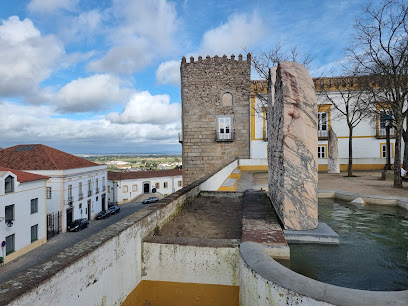
Roman Temple of Évora
0.2 km
Discover the Roman Temple of Évora, an architectural marvel and a UNESCO World Heritage site, steeped in history and cultural significance.

Rota dos Vinhos do Alentejo
0.2 km
Explore the Rota dos Vinhos do Alentejo, where Portuguese wine culture comes alive amidst stunning landscapes and rich traditions.
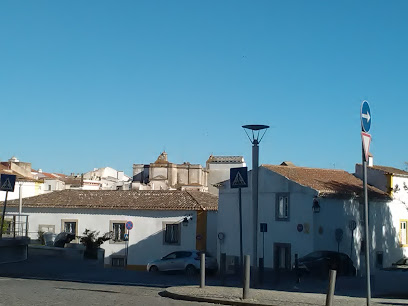
Museum Frei Manuel do Cenáculo
0.2 km
Explore Portugal’s artistic heritage at the Museum Frei Manuel do Cenáculo in Évora, a cultural gem showcasing remarkable religious art and artifacts.
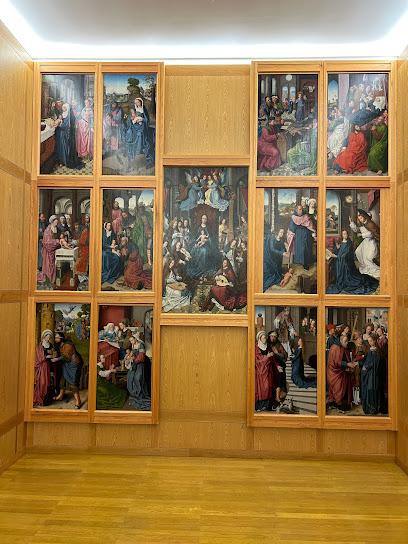
Essential places to dine
9 da Praça
0.0 km
Experience authentic Mediterranean cuisine at 9 da Praça in Évora - where tradition meets taste in every dish.
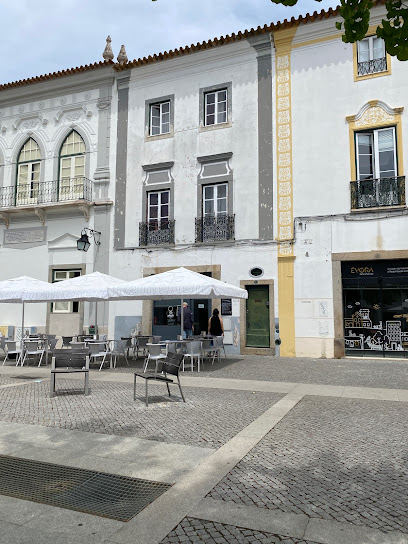
O Antão
0.1 km
Experience authentic Portuguese cuisine at O Antão in Évora – where tradition meets flavor in a welcoming atmosphere.
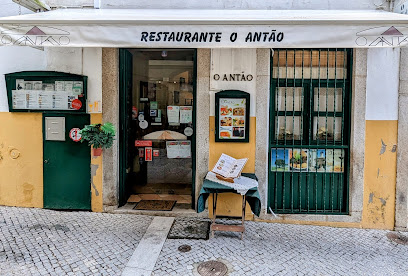
Restaurante 1/4 pras 9
0.1 km
Discover authentic Portuguese flavors at Restaurante 1/4 pras 9 in Évora - where tradition meets taste.
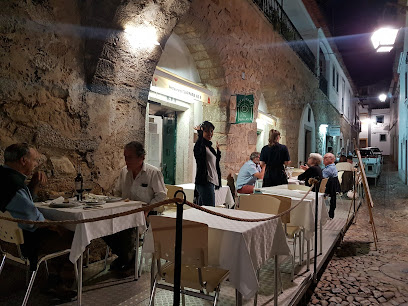
Botequim da Mouraria
0.1 km
Experience authentic Portuguese cuisine at Botequim da Mouraria in Évora – where tradition meets flavor in every dish.
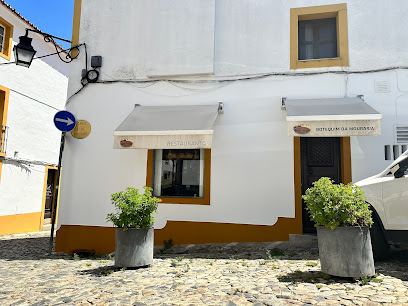
Origens Restaurante
0.2 km
Discover authentic Portuguese cuisine at Origens Restaurante in Évora – where tradition meets innovation in every dish.
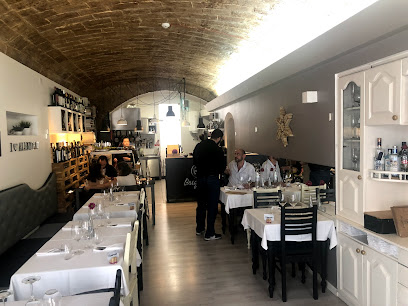
Restaurante Mr. Pickwick
0.2 km
Experience authentic Portuguese cuisine at Restaurante Mr. Pickwick in Évora, where tradition meets culinary excellence.
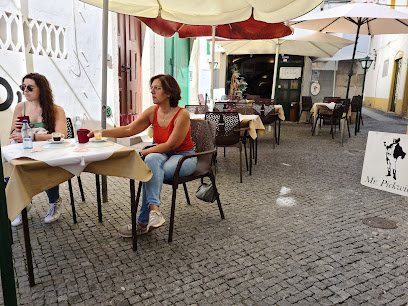
restaurante/pastelaria A Muralha
0.2 km
Experience authentic Portuguese flavors at A Muralha in Évora, where traditional cuisine meets local charm.
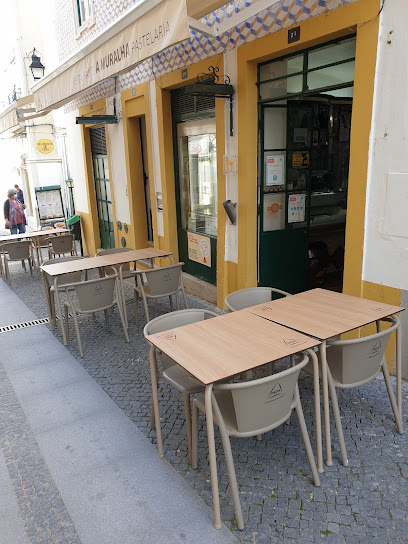
Híbrido
0.2 km
Discover Híbrido in Évora: where traditional Portuguese flavors meet innovative culinary artistry in a warm and inviting atmosphere.
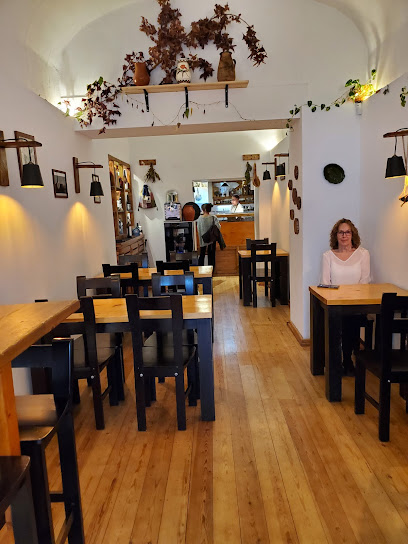
Enoteca Cartuxa
0.2 km
Discover exquisite Portuguese cuisine and fine local wines at Enoteca Cartuxa in Évora – a true culinary delight.
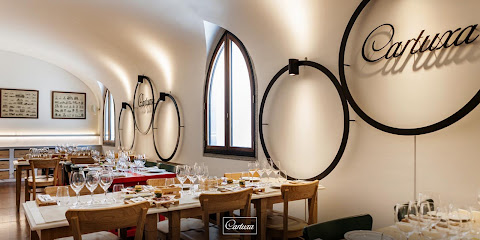
Páteo
0.2 km
Experience authentic Portuguese cuisine at Páteo in Évora - where tradition meets flavor in every dish.
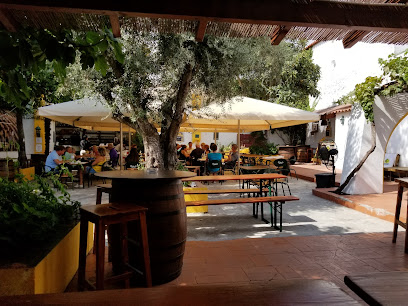
A Choupana
0.2 km
Discover A Choupana in Évora for authentic Portuguese cuisine featuring fresh local ingredients in a charming atmosphere.
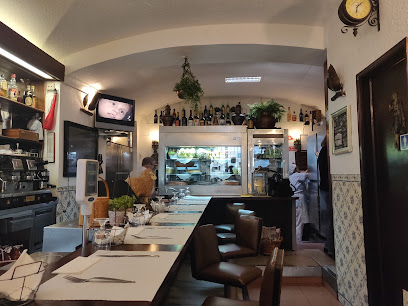
Momentos Évora
0.2 km
Discover authentic Portuguese cuisine at Momentos Évora, where local flavors and warm hospitality create an unforgettable dining experience.
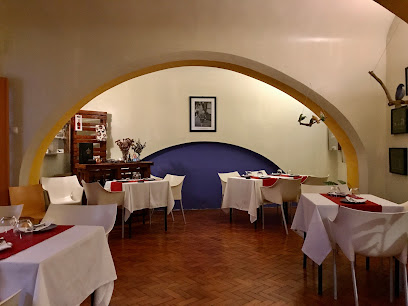
Aromas do Campo
0.2 km
Experience authentic Portuguese flavors at Aromas do Campo in Évora - where tradition meets culinary excellence.
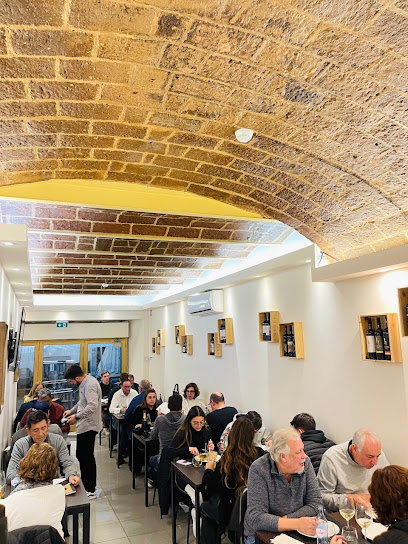
Café Alentejo
0.2 km
Experience authentic Portuguese cuisine at Café Alentejo in Évora – where tradition meets flavor in every dish.
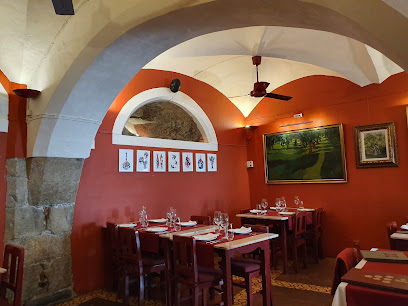
Restaurante A Bruxa D'Évora
0.2 km
Experience authentic Portuguese flavors at Restaurante A Bruxa D'Évora - a culinary haven in the heart of Évora.
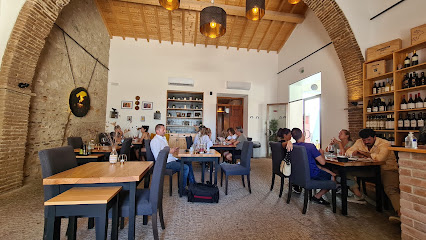
Markets, malls and hidden boutiques
Jirau Handcraft Goods
0.1 km
Discover the artistry of Évora at Jirau Handcraft Goods, where unique ceramics and handcrafted treasures await every discerning traveler.
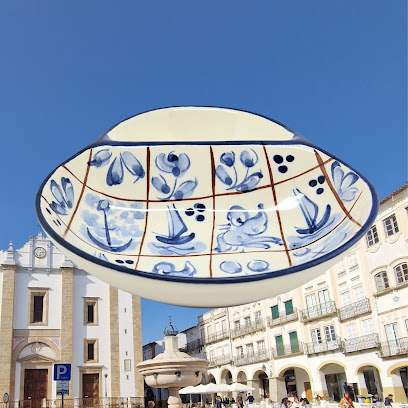
ALE-HOP Évora
0.1 km
Explore ALE-HOP Évora for unique gifts and vibrant local crafts that capture the playful spirit of this historic city.
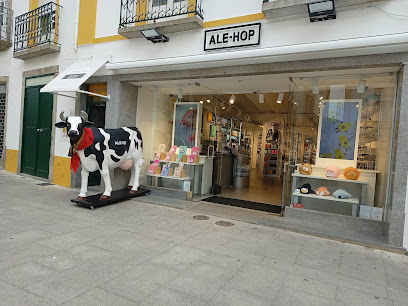
Casa Finita
0.1 km
Discover unique fashion at Casa Finita, Évora's charming clothing store offering a blend of local designs and contemporary styles.
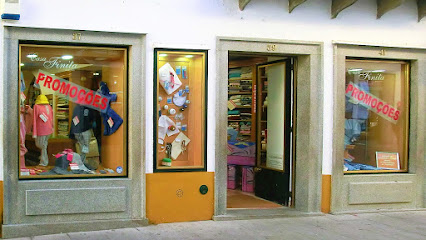
Pull and Bear
0.1 km
Explore trendy fashion at Pull and Bear in Évora, offering stylish clothing for men and women in a vibrant shopping atmosphere.
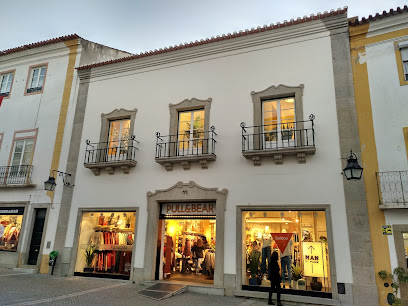
Pepe Jeans Evora
0.1 km
Discover stylish men's and women's fashion at Pepe Jeans Évora, where modern trends meet quality craftsmanship in a vibrant shopping atmosphere.
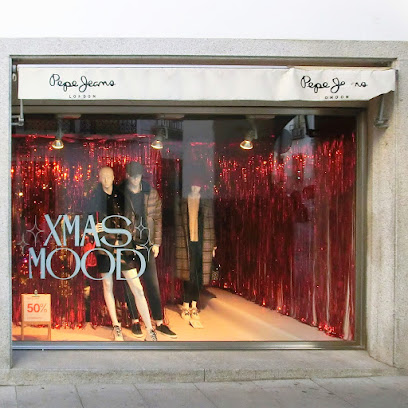
Modévora
0.1 km
Explore the stylish offerings at Modévora, Évora's premier clothing store, blending contemporary fashion with local charm.
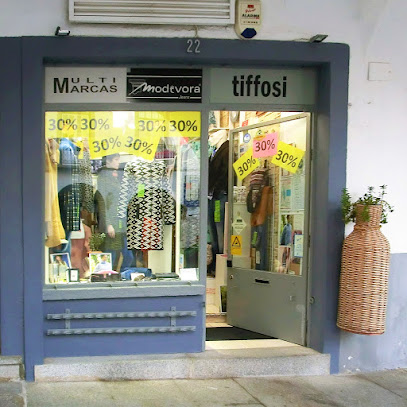
Calzedonia
0.1 km
Discover Calzedonia in Évora for fashionable swimwear and delightful children's clothing amidst the charm of this historic city.
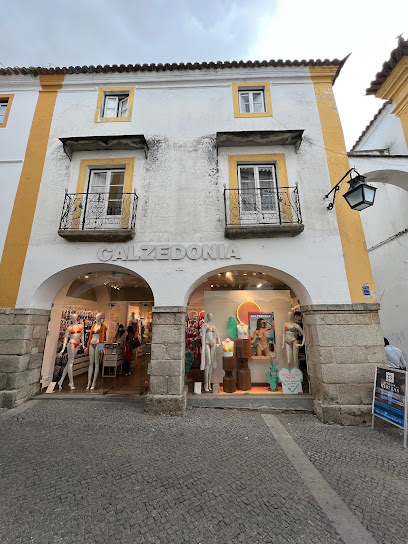
Loja Chinesa
0.1 km
Immerse yourself in the vibrant culture of Évora at Loja Chinesa, a treasure trove of unique artifacts and local crafts.
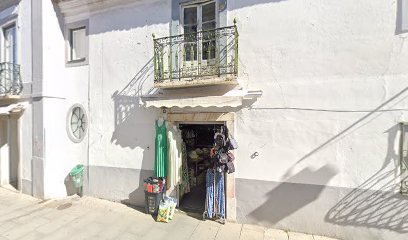
Casa Quadrado - Gonçalves & Escaja, Lda
0.1 km
Discover unique fashion treasures at Casa Quadrado, Évora's charming clothing store blending contemporary style with Portuguese heritage.
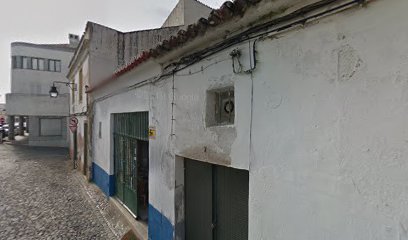
TRB Loja Vintage
0.1 km
Explore vintage fashion treasures at TRB Loja Vintage in Évora, where every garment has a story to tell.
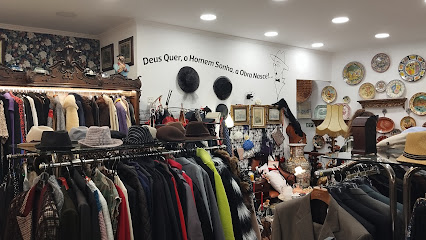
AMOne Roupa de Senhora
0.1 km
Explore unique fashion at AMOne Roupa de Senhora, a charming clothing store in Évora, perfect for stylish souvenirs.
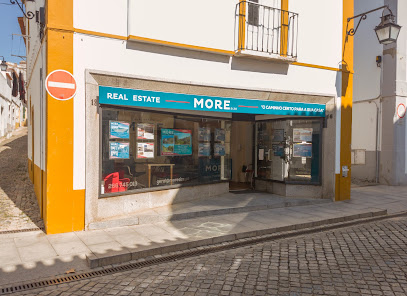
Retrosaria Da Moda
0.1 km
Discover the essence of children's fashion at Retrosaria Da Moda, where unique styles meet local Portuguese craftsmanship.
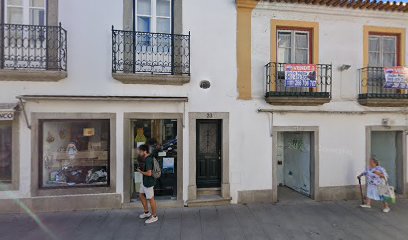
MANGO
0.2 km
Explore MANGO in Évora for stylish women's clothing that blends contemporary design with affordability, perfect for every occasion.
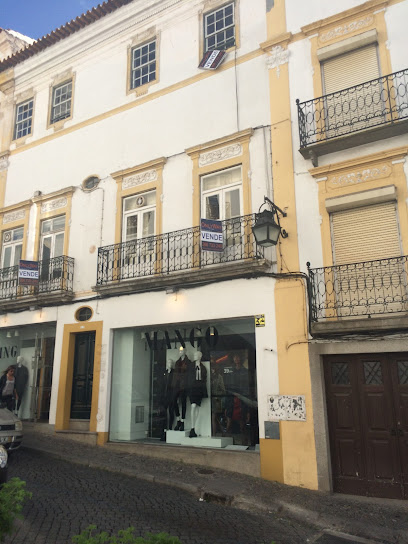
Loja Chinesa - Moda
0.2 km
Explore the vibrant styles of Loja Chinesa - Moda, a unique fashion store in Évora offering eclectic clothing and accessories that celebrate local culture.
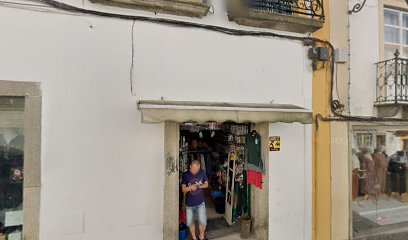
Gente da Minha Terra
0.2 km
Explore Gente da Minha Terra in Évora for unique gifts and authentic souvenirs that celebrate local culture and craftsmanship.
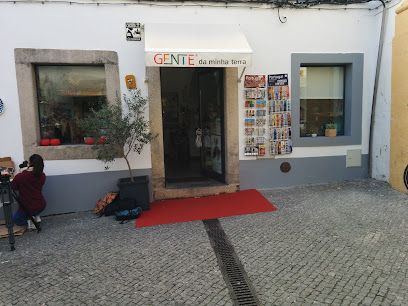
Essential bars & hidden hideouts
Bar A Mandrágora
0.2 km
Discover the vibrant nightlife of Évora at Bar A Mandrágora, where exquisite drinks and a lively atmosphere await you.
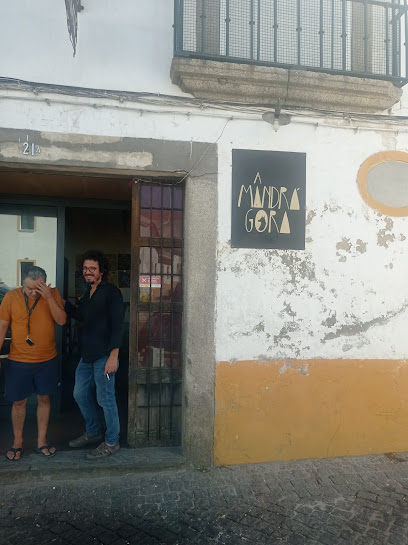
Oficina - Bar
0.2 km
Experience the vibrant nightlife of Évora at Oficina, a cozy bar offering creative cocktails and a welcoming atmosphere for all.
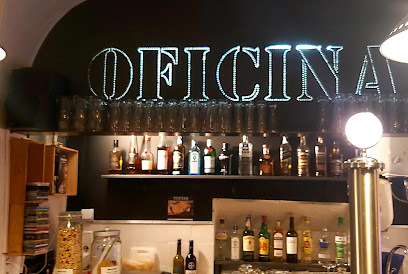
Bar Culpa Tua
0.2 km
Experience the lively atmosphere and local flavors at Bar Culpa Tua in Évora, where nightlife comes alive with every sip.
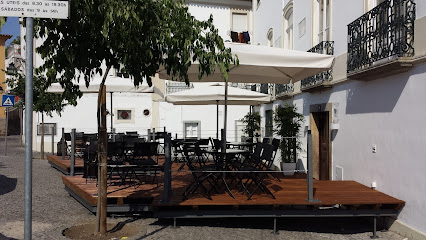
Piparoza boutique bar
0.2 km
Discover the charm of Évora at Piparoza Boutique Bar, where local flavors meet a contemporary dining experience surrounded by vibrant culture.
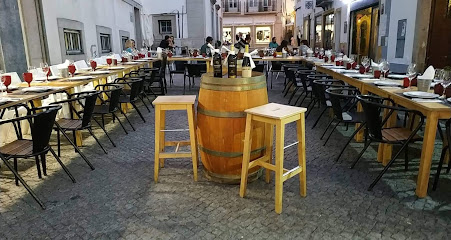
Bar Bardamoeda
0.2 km
Experience the vibrant atmosphere and delicious flavors of Bar Bardamoeda, a must-visit gastropub in Évora, Portugal.
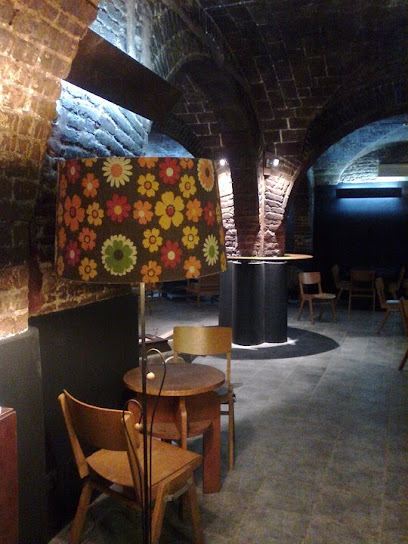
Pub Molhóbico
0.3 km
Discover the lively ambiance and eclectic menu at Pub Molhóbico in Évora, where local culture meets modern dining.
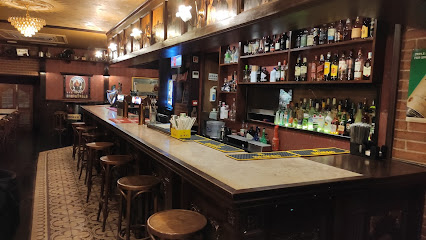
Feito ao Bife
0.3 km
Discover the rich flavors of Portugal at Feito ao Bife, a charming bar and restaurant in Évora dedicated to excellent cuisine and warm hospitality.
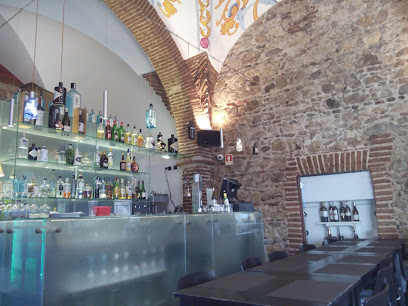
BarUe
0.3 km
Experience the vibrant nightlife of Évora at BarUe, a lively bar with a welcoming atmosphere and a great selection of drinks.
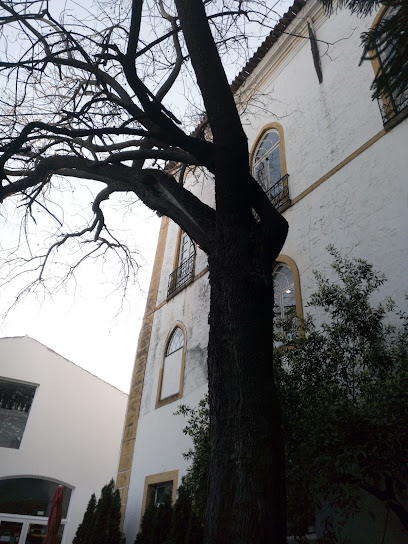
Bar O Tunnel
0.3 km
Discover the authentic flavors of Portugal at Bar O Tunnel in Évora, where friendly service meets delicious local cuisine.
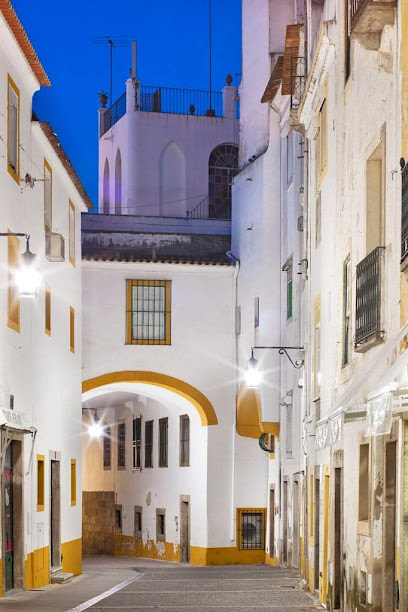
Aqui Há Gato
0.3 km
Experience the vibrant nightlife of Évora at Aqui Há Gato, a lively bar offering diverse drinks, great music, and a welcoming atmosphere.
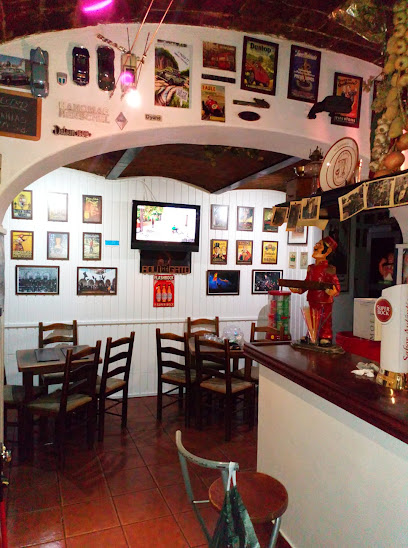
Cafe Estrela d'Ouro
0.3 km
Discover the vibrant atmosphere and local charm of Cafe Estrela d'Ouro, Évora's top bar for unforgettable drinks and delightful company.
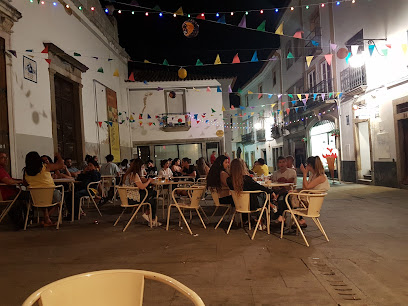
Bar Real Club
0.3 km
Discover the vibrant nightlife of Évora at Bar Real Club – a local hotspot for music, drinks, and unforgettable experiences.
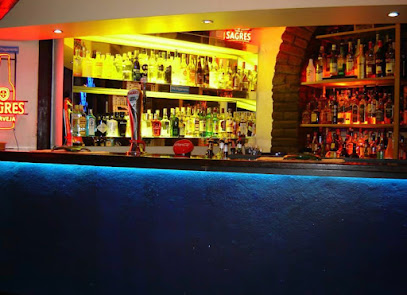
Clube/Bar 6 Tetos
0.4 km
Discover the lively atmosphere and great drinks at Clube/Bar 6 Tetos, Évora's go-to spot for nightlife and pool fun.
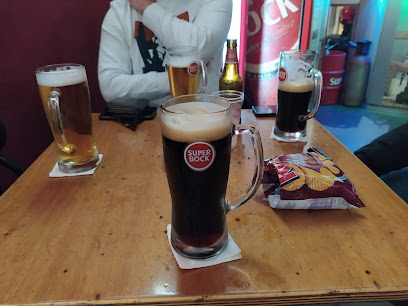
ADC Wine & Food Bar
0.4 km
Experience the best of Évora's culinary scene at ADC Wine & Food Bar, where local wines and flavors come together in a cozy setting.
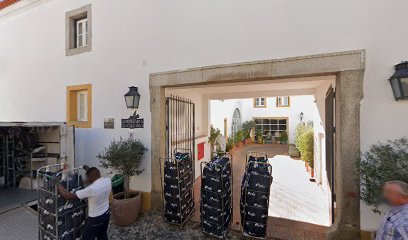
Magnífica Cerveja Artesanal do Alentejo / Beer house & Tapas
0.5 km
Experience the best of Alentejo's craft beer and tapas in a vibrant brewpub atmosphere at Magnífica Cerveja Artesanal.
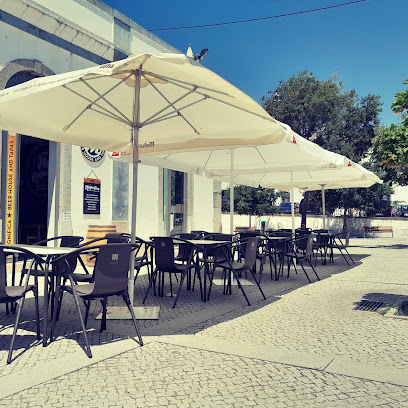
Nightclubs & after hour spots
Capítulo 8
0.2 km
Experience the vibrant nightlife of Évora at Capítulo 8, a lively disco club with an eclectic music mix and a welcoming atmosphere.
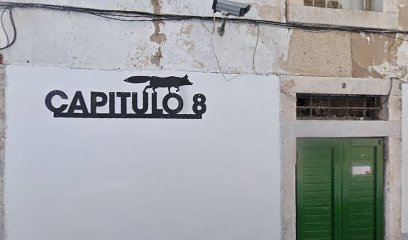
Evoradisco-indústria Hoteleira Lda
0.2 km
Experience Évora's nightlife at Evoradisco, where vibrant music and energetic crowds create unforgettable moments.
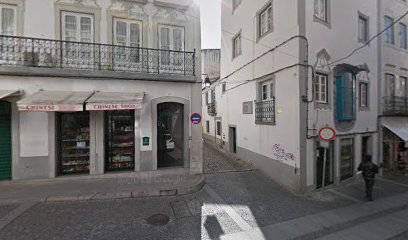
Praxis Club
0.3 km
Discover the electrifying nightlife of Évora at Praxis Club, where unforgettable moments and vibrant music create lasting memories.
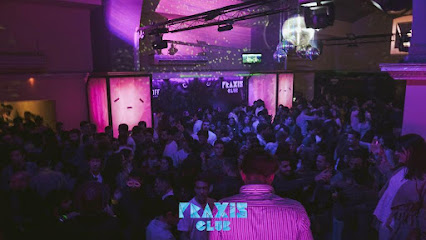
tristar club
0.4 km
Experience the vibrant nightlife of Évora at Tristar Club, where music, laughter, and unforgettable moments await.
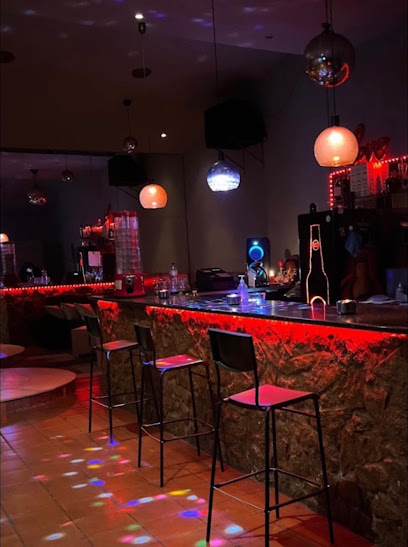
A Ver Évora - Rooftop Bar
0.5 km
Discover A Ver Évora Rooftop Bar, where stunning views meet exquisite drinks in the heart of Évora's historic landscape.
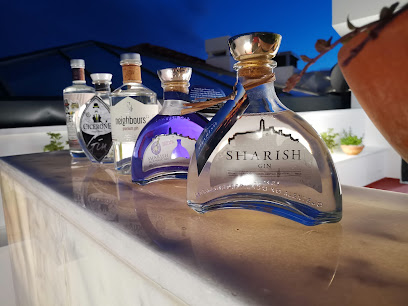
Évora Night Runners - Spot
0.6 km
Join the Evora Night Runners for a unique running experience amidst the stunning backdrop of Evora's historic charm.
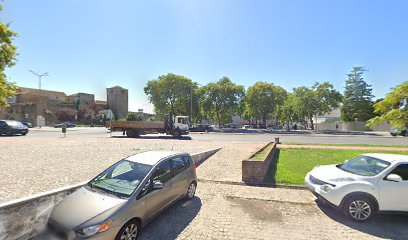
Baladasshow
2.6 km
Experience the electrifying atmosphere of Baladasshow, Évora's top night club, where music, dance, and local culture come alive.
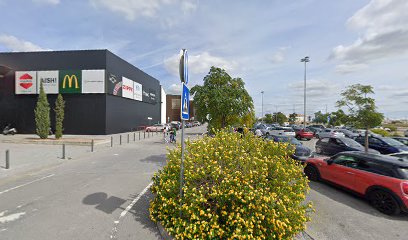
Insonia Club
27.9 km
Discover the vibrant nightlife at Insonia Club in Viana do Alentejo, where dance and music create unforgettable memories.
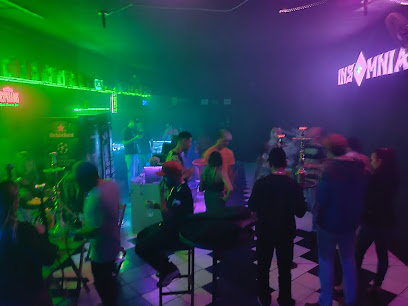
Country Club
62.2 km
Discover the Country Club, where Beja’s nightlife comes alive with vibrant music, refreshing drinks, and a welcoming atmosphere for all.
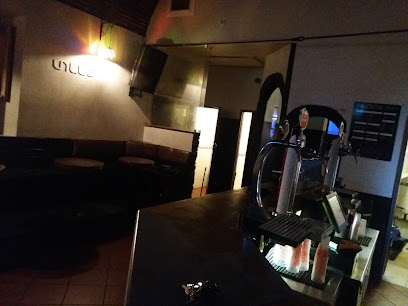
Gao*s
72.2 km
Experience the electrifying nightlife of Elvas at Gao*s, a top disco club featuring vibrant music and a welcoming atmosphere for all.
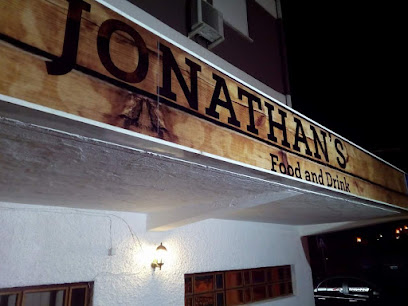
Santalia Summer Club
83.6 km
Discover the vibrant nightlife at Santalia Summer Club, the ultimate disco destination in Badajoz for unforgettable late-night adventures.
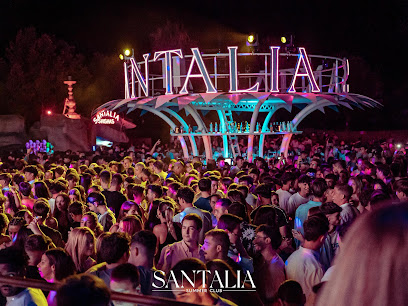
Elevate
83.9 km
Discover Elevate in Setúbal: A chic lounge offering unique drinks and a cozy atmosphere for relaxation and socializing.
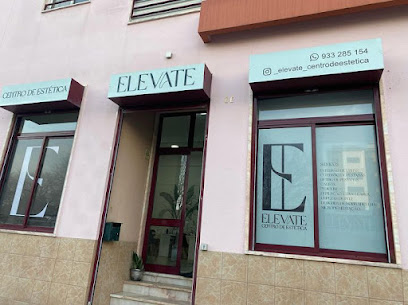
Praça do bocage
85.3 km
Discover the vibrant nightlife of Setúbal at Praça do Bocage, where music, dance, and local culture converge for an unforgettable experience.
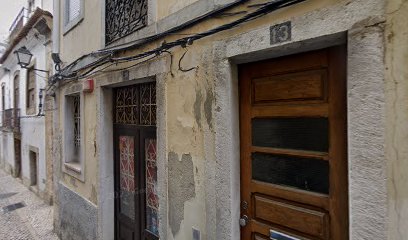
Twelve
86.3 km
Experience the electrifying nightlife at Twelve in Setúbal, where music, dancing, and unforgettable memories await all night long.
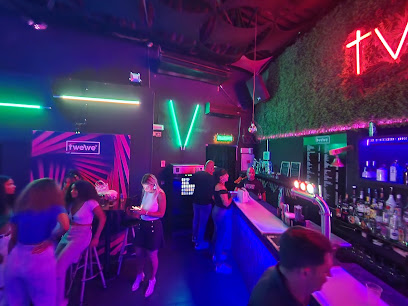
Excalíbur Night
86.4 km
Unleash your inner dancer at Excalíbur Night, Setúbal's vibrant disco club offering unforgettable nightlife experiences until dawn.
